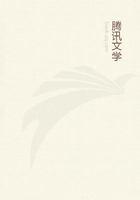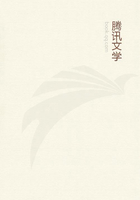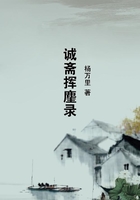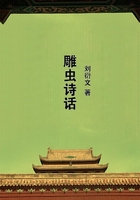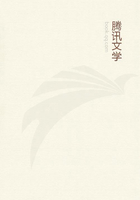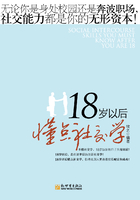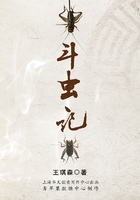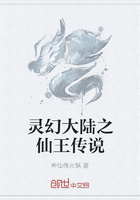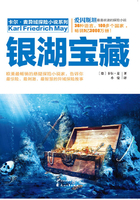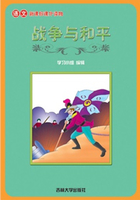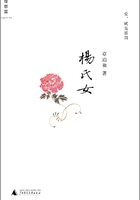Hesiod's diction is in the main Homeric, but one of his charms is the use of quaint allusive phrases derived, perhaps, from a pre-Hesiodic peasant poetry: thus the season when Boreas blows is the time when `the Boneless One gnaws his foot by his fireless hearth in his cheerless house'; to cut one's nails is `to sever the withered from the quick upon that which has five branches';similarly the burglar is the `day-sleeper', and the serpent is the `hairless one'. Very similar is his reference to seasons through what happens or is done in that season: `when the House-carrier, fleeing the Pleiades, climbs up the plants from the earth', is the season for harvesting; or `when the artichoke flowers and the clicking grass-hopper, seated in a tree, pours down his shrill song', is the time for rest.
Hesiod's charm lies in his child-like and sincere naivete, in his unaffected interest in and picturesque view of nature and all that happens in nature. These qualities, it is true, are those pre-eminently of the "Works and Days": the literary values of the "Theogony" are of a more technical character, skill in ordering and disposing long lists of names, sure judgment in seasoning a monotonous subject with marvellous incidents or episodes, and no mean imagination in depicting the awful, as is shown in the description of Tartarus (ll. 736-745). Yet it remains true that Hesiod's distinctive title to a high place in Greek literature lies in the very fact of his freedom form classic form, and his grave, and yet child-like, outlook upon his world.
The Ionic School The Ionic School of Epic poetry was, as we have seen, dominated by the Homeric tradition, and while the style and method of treatment are Homeric, it is natural that the Ionic poets refrained from cultivating the ground tilled by Homer, and chose for treatment legends which lay beyond the range of the "Iliad"and "Odyssey". Equally natural it is that they should have particularly selected various phases of the tale of Troy which preceded or followed the action of the "Iliad" or "Odyssey". In this way, without any preconceived intention, a body of epic poetry was built up by various writers which covered the whole Trojan story. But the entire range of heroic legend was open to these poets, and other clusters of epics grew up dealing particularly with the famous story of Thebes, while others dealt with the beginnings of the world and the wars of heaven. In the end there existed a kind of epic history of the world, as known to the Greeks, down to the death of Odysseus, when the heroic age ended. In the Alexandrian Age these poems were arranged in chronological order, apparently by Zenodotus of Ephesus, at the beginning of the 3rd century B.C. At a later time the term "Cycle", `round' or `course', was given to this collection.
Of all this mass of epic poetry only the scantiest fragments survive; but happily Photius has preserved to us an abridgment of the synopsis made of each poem of the "Trojan Cycle" by Proclus, i.e. Eutychius Proclus of Sicca.
The pre-Trojan poems of the Cycle may be noticed first. The "Titanomachy", ascribed both to Eumelus of Corinth and to Arctinus of Miletus, began with a kind of Theogony which told of the union of Heaven and Earth and of their offspring the Cyclopes and the Hundred-handed Giants. How the poem proceeded we have no means of knowing, but we may suppose that in character it was not unlike the short account of the Titan War found in the Hesiodic "Theogony" (617 ff.).
What links bound the "Titanomachy" to the Theben Cycle is not clear. This latter group was formed of three poems, the "Story of Oedipus", the "Thebais", and the "Epigoni". Of the "Oedipodea" practically nothing is known, though on the assurance of Athenaeus (vii. 277 E) that Sophocles followed the Epic Cycle closely in the plots of his plays, we may suppose that in outline the story corresponded closely to the history of Oedipus as it is found in the "Oedipus Tyrannus". The "Thebais" seems to have begun with the origin of the fatal quarrel between Eteocles and Polyneices in the curse called down upon them by their father in his misery. The story was thence carried down to the end of the expedition under Polyneices, Adrastus and Amphiarus against Thebes. The "Epigoni" (ascribed to Antimachus of Teos) recounted the expedition of the `After-Born' against Thebes, and the sack of the city.
The Trojan Cycle Six epics with the "Iliad" and the "Odyssey" made up the Trojan Cycle -- The "Cyprian Lays", the "Iliad", the "Aethiopis", the "Little Illiad", the "Sack of Troy", the "Returns", the "Odyssey", and the "Telegony".
It has been assumed in the foregoing pages that the poems of the Trojan Cycle are later than the Homeric poems; but, as the opposite view has been held, the reasons for this assumption must now be given. 1) Tradition puts Homer and the Homeric poems proper back in the ages before chronological history began, and at the same time assigns the purely Cyclic poems to definite authors who are dated from the first Olympiad (776 B.C.)downwards. This tradition cannot be purely arbitrary. 2) The Cyclic poets (as we can see from the abstract of Proclus) were careful not to trespass upon ground already occupied by Homer.
Thus, when we find that in the "Returns" all the prominent Greek heroes except Odysseus are accounted for, we are forced to believe that the author of this poem knew the "Odyssey" and judged it unnecessary to deal in full with that hero's adventures. (12) In a word, the Cyclic poems are `written round'

